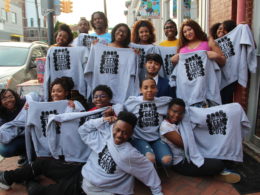Back in the 1980s, congregations around Richmond opened its doors in the winter – for several weeks at a time – to help those with critical housing needs find a safe, warm place to stay at night. Formally incorporated in 1987 as Congregations Around Richmond To Assure Shelter, CARITAS, as it’s known today, continues to help our most vulnerable neighbors in their time of need.
Karen Stanley has been working in the nonprofit space for three decades. Her journey at CARITAS began in 2000 as executive director. Seven years later, Stanley took on a second, concurrent executive director role at The Healing Place, a long-term residential recovery program for men struggling with substance use disorders.
Now operating under one roof, Stanley continues to lead CARITAS as its president and CEO. We caught up with her to learn more about CARITAS, and how it addresses critical needs in our community.
What is CARITAS’ core mission?
United by our compassion, CARITAS helps our most vulnerable neighbors break the cycles of homelessness and addiction to reclaim their dignity. For more than 30 years, CARITAS has provided effective, permanent solutions to community members dealing with the crisis of homelessness and/or substance use disorder in the Richmond area.
Can you characterize the extent of the problem CARITAS addresses in our community?
At any moment, a person can find themselves without a home and in need of emergency shelter. The loss of a job, an illness or a car repair can quickly create a financial crisis. In fact, 40% of Americans don’t have the savings to cover an unexpected $400 expense, according to Federal Reserve data. Here in Richmond, more than 20% of our residents had incomes below the poverty level in 2019. They need somewhere to turn during a crisis.

More than 20% of our neighbors in the Richmond area live at or below the poverty level. Even more troubling, the 1 in 3 children who are economically disadvantaged in the Richmond region, according to Voices for Virginia’s Children.
More than 150,000 Americans died from drug and alcohol related deaths during 2018, a number twice as high as a decade prior. We’re feeling the impact here in Virginia, especially amid the coronavirus epidemic. In 2020, the Virginia Department of Health projected a 26% increase in fatal overdoses from 1,626 deaths in 2019 to 2,053.
Lastly, the current rate of unemployment for individuals formerly incarcerated is more than 27% higher than during the Great Depression, according to the Prison Policy Initiative.
What don’t most people realize or understand?
We work with people from all walks of life throughout our family of programs: The Healing Place, the Emergency Shelter, the Furniture Bank, CARITAS Works and the CARITAS Recovery Residences. As the stats above demonstrate, everyone is vulnerable to addiction, unemployment, homelessness and financial crises that make it challenging to pay for things like housing and furniture.
Here at CARITAS, we don’t provide handouts. We provide men and women with the tools to make their own successful transition to dignity and self-sufficiency.
What kind of work do volunteers do to help CARITAS?
There are many ways to support CARITAS’s work. Volunteers can help collect needed items (such as furniture, housewares, bedding, and more), provide meals (for the Shelter, Works, and The Healing Place), and more.
Right now, we have limited in-person volunteer opportunities as we adapt to the COVID-19 pandemic. You can learn more about how we’ve adjusted our programs on our website.
If $100,000 fell from the sky tomorrow, how would you spend it?
For us, $100,000 means greater assurance that our services remain accessible. For example, as we get the word out about our newly opened residential recovery program for women, our research has been validated: women in the Richmond area need our recovery services. As we bring more women into our recovery program, we will see a growth in need for our other services: workforce development training, transitional living arrangements, furniture for their new homes, and other case management services. We’ll need to bolster and improve these programs as we begin to welcome more women under our roof. We don’t know how just yet, but we know we will.
In addition, the COVID-19 pandemic has increased the need for our services for both women and men. There was a 40% increase in fatal overdoses in Virginia in 2020, when the pandemic began. We don’t know how long the pandemic will impact people suffering from substance use disorder. We know we must be here when people seek help, whether the pandemic grows or halts.
Availability and accessibility can often be the difference between life and death.
To learn more about CARITAS, visit its website, Facebook, Instagram and Twitter pages. You can also view all of its open volunteer opportunities here, or you can email specific questions here.










